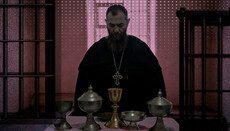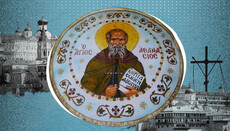The movie "Pay It Forward": Reflections on the nature of goodness
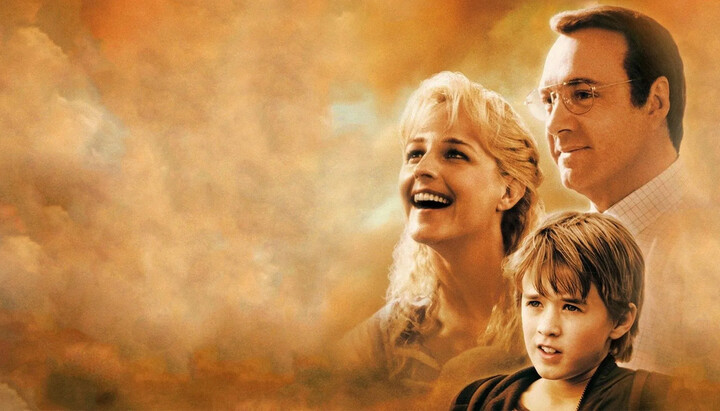
What if you refuse gratitude for a good deed and ask it to be passed on to someone else? Will your kindness return to you, and can you make the world a better place?
The original title of the film is “Pay It Forward”. The movie begins in a rather intriguing way. Journalist Chris Chandler's car gets into an accident. He is frustrated and doesn't know what to do since he's lost not only his property but also his means of transportation, which he really needs. Suddenly, a stranger appears and simply gives him his "Jaguar". Chandler is puzzled: this is a "Jaguar", a very expensive car — how can you just give it to me? Don't you want anything in return? The stranger replies that the only thing required from Chandler is to "pay it forward" — that is, to do a good deed for someone else when the time comes.
Intrigued, Chandler tracks down the stranger the next day and tries to find out what motivates such a generous and unusual act.
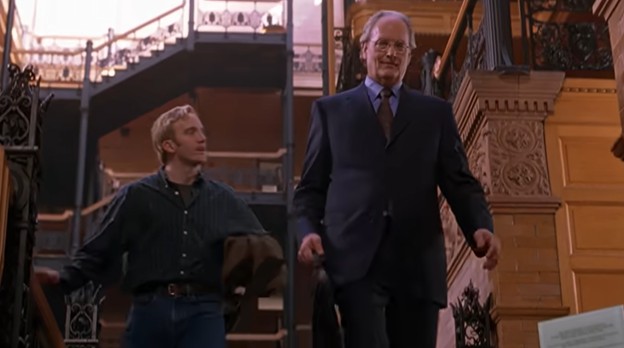
The stranger, a wealthy and influential man, tells him a story about how he almost lost his daughter, who had an asthma attack and was not prioritized by the doctors for treatment because a young man with a bloody wound had arrived at the hospital before her. However, this young man not only gave up his turn but also yelled at the doctor, forcing him to save the girl. When asked how he could be thanked, the man said, "Pay it forward." As a result, journalist Chandler ended up with not only a brand-new "Jaguar" but also a great topic for an investigative report. Now, he must find this man and figure out what motivates such an idea: "Pay it forward?"
At the same time, the film shows the opposite end of this chain. In a very ordinary school, there is an ordinary boy named Trevor McKinney.
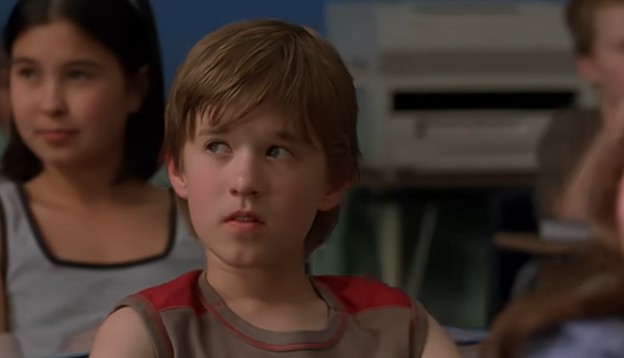
He is 11 years old and lives with his mother, Arlene, who can't seem to quit drinking. Trevor's father (played by Jon Bon Jovi) doesn't live with them but occasionally returns, though these visits only bring trouble. He also suffers from alcoholism and often terrorizes Arlene and Trevor.
Trevor McKinney begins the seventh grade in Las Vegas. A new social studies teacher, Eugene Simonet, arrives. He is quite an unusual teacher. First, his face is horribly scarred from burns, and second, on the very first lesson, he assigns the class to put into action a plan that will change the world for the better.
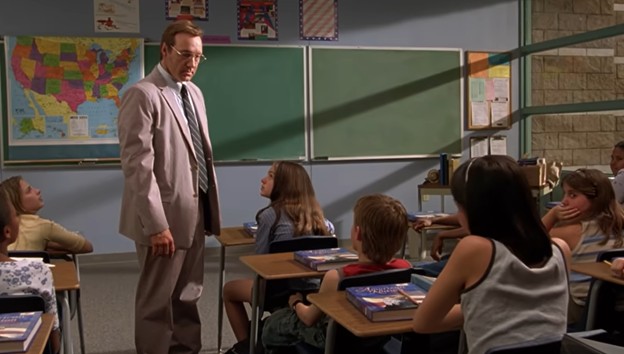
Here one can pause and think: what could I propose? Many people (if not all) understand that our world is imperfect, filled with evil, suffering, and imperfection.
Many would like to change this world. Some try to do it. But only a few understand that our world cannot be changed by political, economic, or social reforms.
It is impossible to come up with a social system or an economic model under which everyone would be happy. Attempts to implement various theories of universal prosperity usually turn into colossal tragedies with millions of human casualties. Just think of the attempt to build a just and happy society based on Marxism-Leninism! Why does the desire to change the world for the better often lead to tragedies, innocent victims, and the world becoming worse as a result?
Christianity knows the answer to this question. It says: if you want to change the world, start with yourself. This truth was most succinctly expressed by St. Seraphim of Sarov: acquire a peaceful spirit, and thousands will be saved around you.
The students come up with various ideas. Someone even suggests creating a website on the internet that would encourage all Chinese people to jump at the same time to change the center of gravity of the Earth. Funny? Absurd? But it certainly meets the assignment: implementing this idea is theoretically possible, and it would definitely change the world. Why? Wouldn't it make things worse? Those are additional questions. Despite the absurdity of this proposal, we must honestly admit: we often act in such a way, taking some action without thinking about where it will lead and whether it will harm some people or ourselves.
Trevor comes up with something different. He proposes a scheme where he will do a favor to three people and ask them to do a favor to three others. In this way, the "amount" of goodness will increase exponentially.
The first person Trevor tries to help is a homeless drug addict whom he finds in a troubled area, brings home, feeds, and lets stay overnight. A crazy act. After all, the homeless person could steal something, commit violence against him or his mother, cause a ruckus and so on. All this is very reasonable and logical according to our human logic. But this sincere impulse to help someone in need is very valuable before God. "For the Lord sees not as man sees; for man looks at the outward appearance, but the Lord looks at the heart" (1 Sam. 16:7).
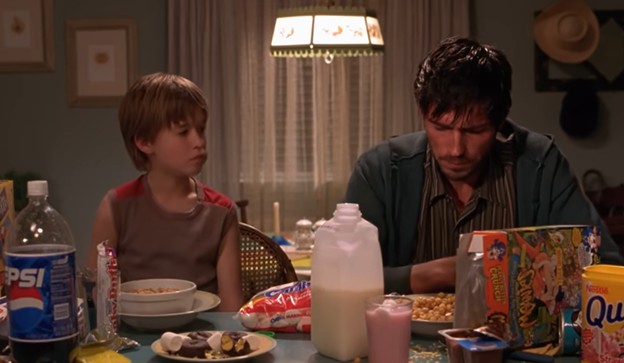
Trevor's mother accidentally discovers the unfamiliar homeless man in her house. At first, she is very frightened, and then she is very outraged by her son's actions. She thinks in that very human logic. Arlene questions her son about why he did this, and Trevor tells her about the assignment from the unusual teacher. Arlene comes to the school and causes a scandal: how dare the teacher assign students to bring homeless people into their homes? Despite the fact that Arlene and Eugene feel antipathy towards each other upon their first meeting, Trevor plans to marry them off, as they are both dear to him. This is how he wants to save his mother from alcoholism and the teacher from loneliness. He arranges a date for them, and things seem to be starting to fall into place.
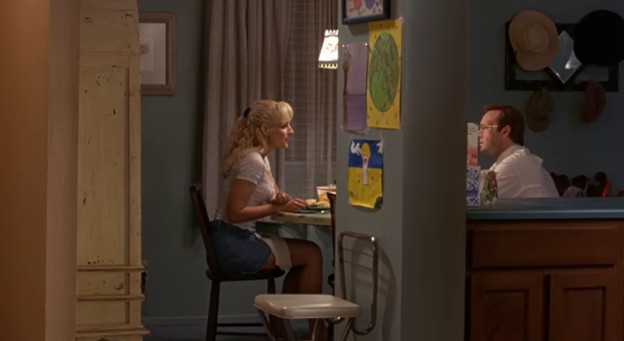
The third person Trevor decides to help is his classmate, who is bullied by older students. A typical case of school bullying, unfortunately familiar to many. But life is not a fairytale with a guaranteed happy ending. In life, things often turn out differently than we imagine. Sometimes good deeds lead to bad consequences or simply go unnoticed. Trevor faces disappointment: the homeless man he sheltered and gave a chance to recover falls back into the depths of drug oblivion. His mother and Eugene, both having experienced betrayal and psychological trauma in their lives, cannot trust each other. And he himself does not dare to stand up for his classmate when he is beaten, simply because he is afraid. So, do his ideas and dreams, so right and beautiful, mean nothing in reality? Is it all in vain? Does good have no chance?
Trevor is already ready to believe that it is indeed so, but despite everything, the seed of good he has sown bears fruit. The homeless drug addict, despite his inability to overcome his addiction, remembers the kindness shown to him by a simple boy. And in a crucial moment, he does not pass indifferently by a girl ready to commit suicide. And his mother, Arlene, suddenly remembers her own mother, also a fallen alcoholic, and visits her for the first time in many years.
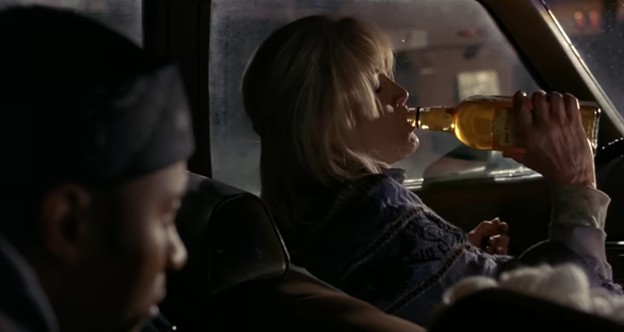
The mother helps some troubled young black man, who turns out to be the very man who gave up his turn in the hospital for the girl with the acute asthma attack. And in reverse order, this entire chain of good deeds is unraveled by journalist Chris Chandler.
Let’s not talk about how the film ends. Let’s think about this.
Why do we do good for others? What is our motivation? And should we limit ourselves to just three (some number of) good deeds?
Often we do good because someone did good for us before. This trait of our psychology is well described in the famous book "Influence: The Psychology of Persuasion" by American psychologist Robert Cialdini. A person who has received a good deed inevitably feels indebted and tries to do something good in return. In the film "Pay it Forward," this is simply redirected to some third person. Cialdini describes this as a manipulative technique: if you want to achieve something from a person, do something good and seemingly selfless for them first. Yes, you seem to be asking for nothing in return, but in reality, it will be hard for them to refuse any request.
The second common reason why we do good is that we expect something in return, some reward, material or immaterial, gratitude, or something else. We do good for someone and already expect that this person will do something for us in return or at least be grateful. Among believers, this attitude is often extrapolated to God. We perform acts of charity and expect that God will reward us fourfold. We do good deeds to receive a reward, if not in this life, then in the next. We earn the Kingdom of Heaven. And it seems all right, and we can even find quotes from Scripture that confirm this attitude towards good.
But still, such an attitude is unworthy of God. Our relationship with God is not a legal contract or a trade: “You give me this, and I’ll give you that.”
True goodness is a quality of a person turned toward God. "Be merciful, just as your Father is merciful" (Luke 6:36). Here, it’s not about actions, but about the state of the soul. A person should strive to be merciful, to acquire this trait, this virtue, which will, of course, manifest in specific deeds. But one can do a good deed without mercy or a kind heart. One can do it with the hope of reward or even use goodness as a manipulation tool. However, if a person is truly good, if they are merciful, if they love God and their neighbor, they radiate goodness naturally. They perform good deeds simply because they cannot do otherwise. This is what we should strive for.
In conclusion, I’d like to share the words of St. Anthony the Great, the founder of monastic life. This man, who spent his entire life away from people and took on immense ascetic struggles, ultimately came to the following conclusion: “The person who knows God is good; and when he is not good, it means he does not know God and will never be known by Him: for the only way to know God is through goodness.”



